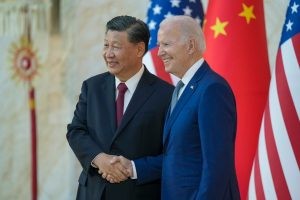In recent years, the escalating rivalry between the United States and China has been a focal point of global attention. Southeast Asia, in particular, has become a crucial theater for this power struggle. Vietnam, situated in the heart of this dynamic region, has a unique perspective on the challenges and opportunities posed by this strategic competition.
Understanding Vietnam’s Position
Vietnam, as the only Southeast Asian nation to have faced direct military confrontations with major powers during the Cold War and shifting geopolitical landscapes, is acutely aware of the impact of intensified strategic competition on its relationships with these global players. Its primary goal remains peace and stability in the region, allowing the country to concentrate on its economic development.
Perceiving the Competition
In the broader Southeast Asian context, the U.S.-China rivalry is perceived as the most significant power struggle. However, Vietnam also views Russia as an influential competitor, given its long-standing relationship with Moscow and perceptions of Russia’s influence in the region. This triangular relationship, established during the Cold War, continues to influence global dynamics and holds critical implications for Southeast Asia.
Vietnam is most affected by this competition in the maritime domain, notably in the South China Sea. The rapid expansion of China’s naval presence in these waters is of particular concern to Vietnam. Furthermore, increasing trade and technology competition, with China and the United States as Vietnam’s largest trading partners, raises apprehensions about potential disruptions to the regional economy.

Impacts on Vietnam
Vietnam has felt the repercussions of heightened competition not only in the South China Sea but also in global trade and governance initiatives led by major powers. These developments pose challenges for maintaining Vietnam’s strategic partnerships with both the United States and China. Balancing these relationships has become increasingly intricate, especially amid the Russia-Ukraine conflict, where Vietnam faced pressure to align with either side
Vietnam’s Outlook
Despite the tensions created by strategic competition, many in the region recognize that competition is essential to maintain a balance of power. Managing the associated risks is discussed extensively, but the consensus is not to limit competition itself. Such competition grants ASEAN greater agency and strategic space in the Indo-Pacific region. It offers opportunities for diversifying relationships, reducing dependencies, and encouraging innovation in areas like technology and governance.
However, strategic competition complicates relationships for Southeast Asian nations like Vietnam, as trust deficits among major powers can affect third-party interactions. Vietnam’s “be a friend to all” policy becomes more challenging as its major allies are increasingly at odds.
ASEAN’s Role and Vietnam’s Options
Vietnam shares ASEAN’s collective interests in preserving peace, stability, and economic development. Its primary concerns include sovereignty, territorial integrity, independence, and autonomy. Several policy options are available to ASEAN member states, including balancing, hedging, maintaining neutrality, or strategic autonomy, and investing in multilateralism and international law.